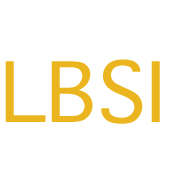
Everyday Presents a Myriad Of Things To Worry About
Going through my days I’m confronted with a daily array of situations and people. A worrier by nature I tend to focus on the possible negatives. That means my words and actions are the subject of unending scrutiny. Which leads to way too much rumination. It’s exhausting and sleep depriving. And, ultimately a waste of energy.
The Majority of the Things You Worry About Will Never Come to Pass
Over the past week I’ve worried about more things than I care to remember. Here are a few examples:
I said the wrong thing in a meeting and left it feeling sure I’d left a terrible impression on everyone else in the room.
Several months ago, during a house cleaning I came across a certificate from a course I’d taken. I didn’t see any reason to hold on to it anymore so I threw it out. A few days ago, I was asked for proof of my qualifications. Since I didn’t have the piece of paper anymore, I was convinced I was out of the running for the opportunity.
Instead of creating a presentation based on successful templates from the past I came at it from a brand new angle. The night before I was going to present, I decided I’d made a huge mistake. I spent several hours re-doing the work.
As is usually the case all my worry was for naught. The day after the meeting, I was the only one who remembered my mis-spoken words. I was able to contact the organization that offered the course and have a new certificate sent out. Bleary from my night of extra work, I took my original presentation by mistake – and presented it to resounding success.
We are only the center of our own lives
Because we are the stars of our own lives, we sometimes lose sight of the fact that the rest of the world isn’t focusing as closely on our actions or our words as we are. They are busy focusing on the stars of their dramas. What seems huge to us is often little more than a passing moment to others.
Everything is disproportionately large in the moment
The moment something happens it takes up a lot of space in our minds and imaginations because it is so new. As all-encompassing as something feels in the moment, it’s important to remember it will (sooner or later) fade into the tapestry of the past. The majority of the time, the fall out from whatever happened, never actually happens.
Mirage in the desert
When you find yourself worrying about something, call yourself out on it. Remind yourself to wait and see. You only have to deal with problems when and if they actually ARE problems. The difference between what might happen and what does happen is like the difference between a mirage in the desert and an actual oasis.




